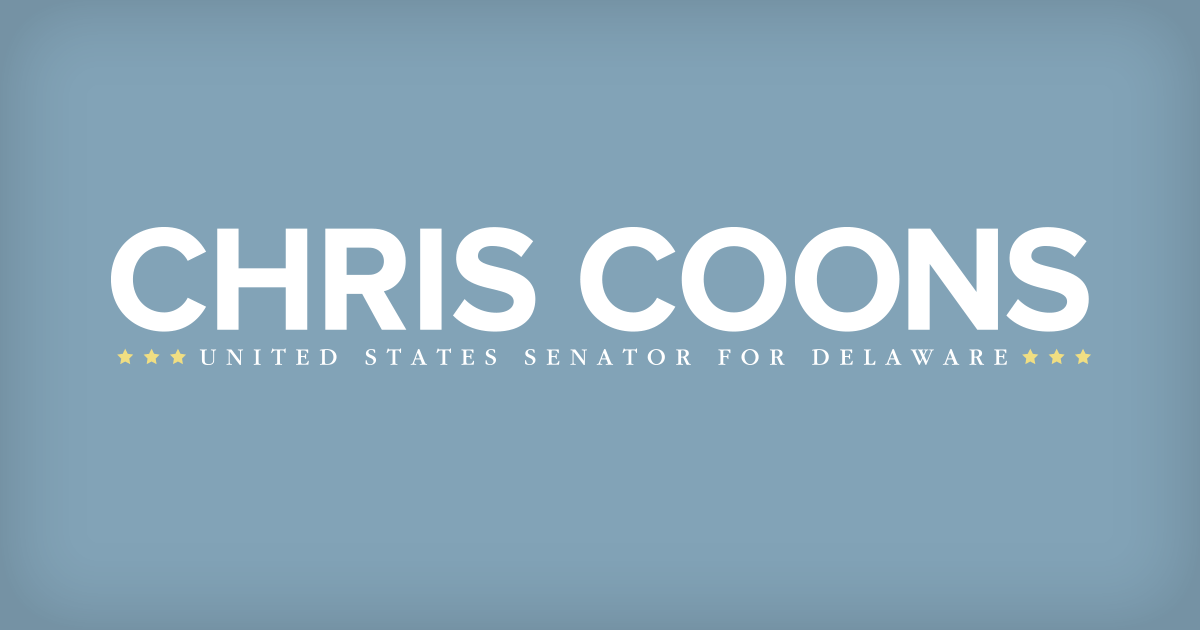Source: United States Senator for Delaware Christopher Coons
WASHINGTON — Today, legislation led by U.S. Sens. Chris Coons (D-Del.) and Roger Wicker (R-Miss.) to create incentives to stop debt-based driver’s license suspensions advanced through the Senate Judiciary Committee with bipartisan support. The Driving for Opportunity Act would provide targeted and voluntary grants to states that choose to end these suspensions. This bill is cosponsored by U.S. Senators Dick Durbin (D-Ill.), Chuck Grassley (R-Iowa), Chris Van Hollen (D-Md.), John Boozman (R-Ark.), Richard Blumenthal (D-Conn.), Joni Ernst (R-Iowa), Ron Wyden (D-Ore.), Thom Tillis (R-NC.), Corey Booker (D-NJ.), Sheldon Whitehouse (D-RI.), and James Lankford (R-Okla.).
“Millions of Americans have their driver’s licenses suspended, and in large part simply because they are poor. These debt-based license suspensions are nonsensical and damaging, disproportionately trapping Black and Brown communities in a vicious cycle of debt,” said Sen. Coons. “We cannot expect Americans to pay back debts while taking away the very ability to go to work and pay back their fines and fees. The Driving for Opportunity Act advancing through the Senate Judiciary Committee today outlines the good that comes from bipartisanship and Congress working together. I’m glad to see this advance to the whole Senate and ultimately to President Biden’s desk.”
“Suspending driver’s licenses for unpaid fines and fees is counterproductive,” said Senator Wicker. “Americans need access to vehicles to work and to care for their families. With committee passage of our proposal, we are now one step closer to providing states meaningful incentives to follow Mississippi’s lead and adopt more workable enforcement practices.”
“This bipartisan bill encourages states to stop suspending, revoking, or refusing to renew driving privileges and vehicle registrations based on unpaid fines and fees. This practice makes it more difficult for people to earn a living, which creates a trap that keeps them in poverty,” said Sen. Durbin. “This bill will make our system fairer by helping to eliminate a practice that criminalizes being poor. I’m pleased to see this commonsense legislation advance out of Committee.”
“It makes zero sense to strip someone of the driver’s license they need to earn a living and repay their debts,” said Sen. Whitehouse. “I’m pleased to support this legislation to end the counterproductive, burdensome practice of suspending licenses for an inability to pay fines or fees. It’s a commonsense fix.”
The Driving for Opportunity Act is supported by a broad coalition of groups spanning the political spectrum, including civil rights and civil liberties advocates, law enforcement officers, prosecutors, and defense lawyers. These groups include the Fines and Fees Justice Center, ACLU, Americans for Prosperity, Americans for Tax Reform, FreedomWorks, U.S. Chamber of Commerce, National District Attorneys Association, the Fraternal Order of Police, Major County Sheriffs of America, the Major Cities Chiefs Association, American Association of State Highway Transportation Officials, Prison Fellowship, National Association of Criminal Defense Lawyers, Civil Rights Corps, Due Process Institute, Fair & Just Prosecution, Lawyers Committee for Civil Rights Under Law, Vision Zero Network, SPLC Action, The Libre Initiative, Law Enforcement Action Partnership, and Digital Library.
“The Driving for Opportunity Act would help relieve hundreds of thousands of people from the predatory debt-collection practice of driver’s license suspension. When people can’t afford to pay tickets, fines, and fees, penalties include driver’s license suspensions, arrest, and even incarceration. The burden of this policing for profit system falls primarily on Black and Brown communities who are already over-policed. We urge Congress to help end this criminalization of poverty by passing the Driving for Opportunity Act,” said Emily Dindial, Advocacy and Policy Counsel at the American Civil Liberties Union.
“This legislation would help states get millions of Americans back to work and help them take care of their families,” said Priya Sarathy Jones, National Policy and Campaigns Director at the Fines and Fees Justice Center. “Our nation’s economic growth is hindered by counterproductive debt-related license suspensions, which are trapping millions of people in a cycle of poverty. Elected officials from across the political spectrum understand this legislation is a win-win situation both for low-income residents and for their state’s bottom line.”
“The National District Attorneys Association is thrilled that the bipartisan Driving for Opportunity Act is moving forward in the Senate Judiciary Committee. The mangers amendment provides sufficient funding to ensure the legislation will assist States in successfully ending driver’s license suspensions for unpaid fines and fees while preserving the ability of prosecutors to keep our roads safe by still allowing suspensions for those who pose a public safety risk. Limiting the bill any further by allowing suspensions for any unpaid criminal or civil fees would undermine the goal of this effort by continuing to punish those who face financial hardships, while providing no additional public safety benefit. As the oldest and largest prosecutor association and home of the National Traffic Law Center, NDAA is confident the Driving for Opportunity Act strikes the right balance between preserving the tools for prosecutors to keep our roads safe while ending the harmful and unnecessary practice of punishing individuals who seek to continue serving as productive members of their communities,” said Frank Russo, Director of Government Affairs at the National District Attorney’s Association.
“Driving on a suspended license is one of the most common criminal charges across the county, and law enforcement officers initiating contact with people whose only issue is an unpaid fine or fee does nothing to enhance public or traffic safety. In fact, it could create an incident that could escalate into tragedy. The number of law enforcement officers killed due to traffic-related incidents during the first half of this year increased 58% compared to that time in 2020. This bill will help ensure our officers stay focused on public safety,” said Patrick Yoes, National President of the Fraternal Order of Police.
###
